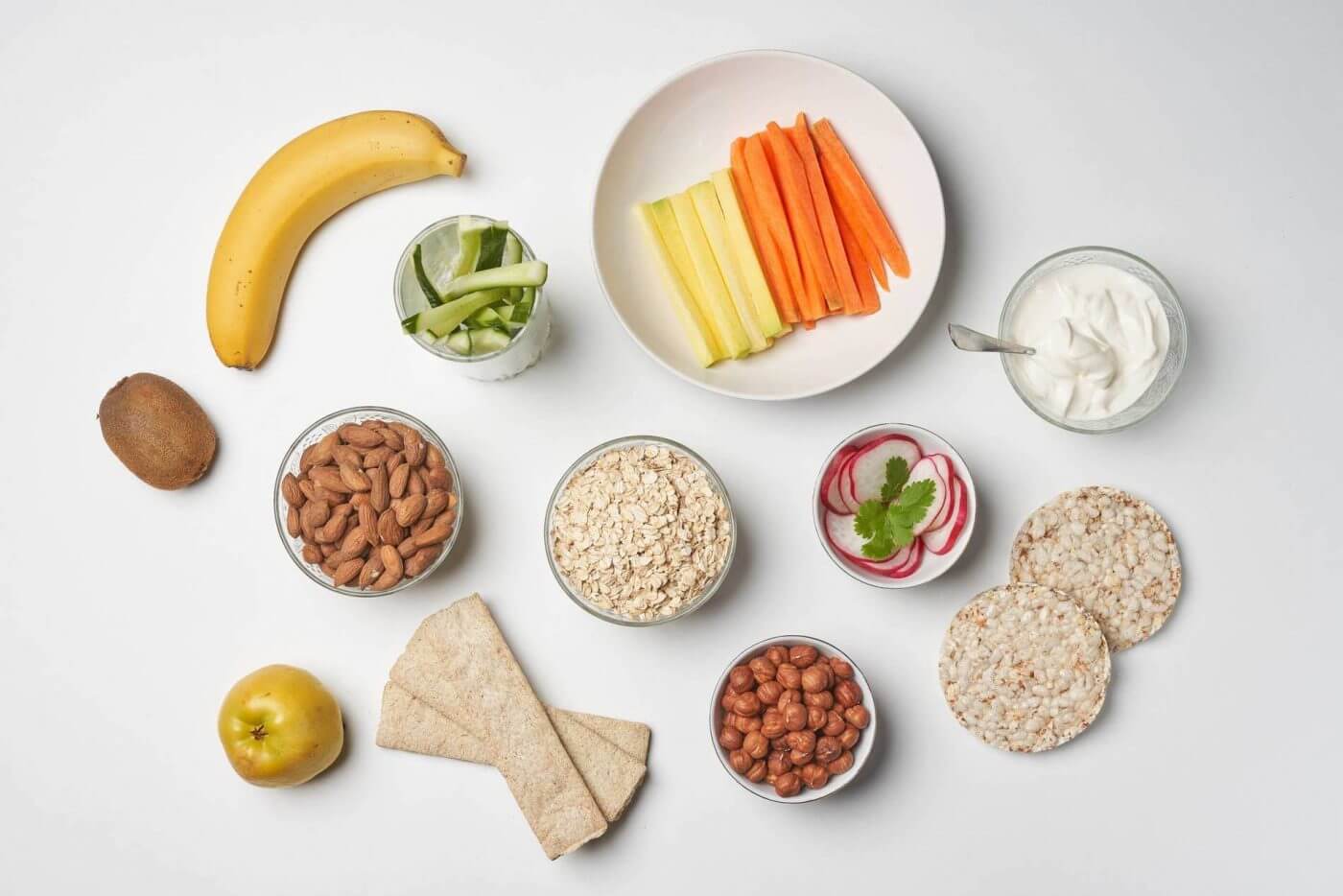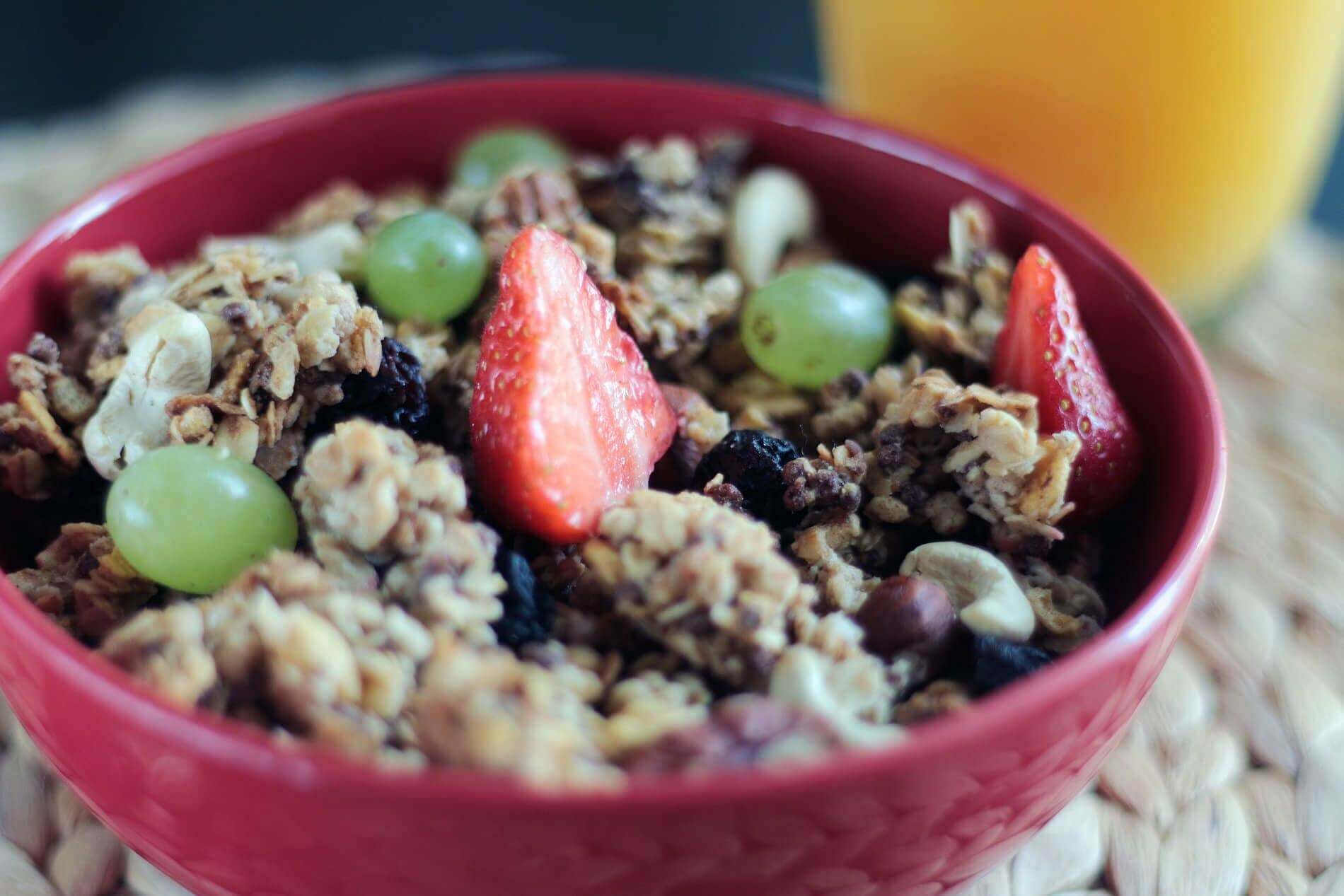With the increasing focus on health and sustainability, plant-based diets have been gaining popularity in recent years. Many individuals are now opting for a diet that primarily consists of plant foods, such as fruits, vegetables, whole grains, legumes, nuts, and seeds. Not only are these diets beneficial for our health, but they also have a positive impact on the environment.
Why plant-based diets are gaining popularity
The rising popularity of plant-based diets can be attributed to various factors:
- Health Consciousness: People are becoming more aware of the impact diet has on their overall health. Plant-based diets are often associated with lower risk of chronic diseases, including heart disease, diabetes, and certain types of cancer.
- Environmental Concerns: The environmental impact of animal agriculture, including greenhouse gas emissions, deforestation, and water pollution, has led many individuals to adopt plant-based diets as a more sustainable choice.
- Animal Welfare: Ethical considerations regarding the treatment of animals in the food industry have prompted some individuals to choose plant-based diets as a way to reduce animal suffering.
The health benefits of adopting a plant-based diet
Plant-based diets offer numerous health benefits:
- Reduced Risk of Chronic Diseases: Plant foods are rich in nutrients, antioxidants, and fiber, which can help lower the risk of heart disease, high blood pressure, type 2 diabetes, and obesity.
- Weight Management: Plant-based diets are often lower in calories and saturated fat compared to animal-based diets, making them beneficial for weight loss and weight management.
- Improved Digestion: The high fiber content in plant foods promotes healthy digestion, prevents constipation, and supports a healthy gut microbiome.
- Increased Nutrient Intake: Plant-based diets can provide a wide range of vitamins, minerals, and phytochemicals that are essential for optimal health.
By adopting a plant-based diet, individuals can not only improve their own well-being but also contribute to a more sustainable and compassionate food system.
Here’s a table summarizing the health benefits of a plant-based diet:
| Health Benefits | Explanation |
|---|---|
| Reduced risk of chronic diseases | Plant-based diets are associated with a lower risk of heart disease, high blood pressure, type 2 diabetes, and obesity, due to their nutrient-rich, low-saturated fat composition. |
| Weight management | Plant-based diets tend to be lower in calories and saturated fat, making them beneficial for weight loss and weight management. |
| Improved digestion | The high fiber content in plant foods promotes healthy digestion and supports a healthy gut microbiome, reducing the risk of constipation and other digestive issues. |
| Increased nutrient intake | Plant-based diets can provide a wide range of vitamins, minerals, and phytochemicals, which are crucial for optimal health and well-being. |
Health Benefits of a Plant-Based Diet
Switching to a plant-based diet can have a transformative impact on your health. Not only does it provide a wide range of essential nutrients, but it also offers numerous health benefits. If you are considering adopting a plant-based lifestyle, here are some advantages that you can look forward to:
Improved heart health and reduced risk of cardiovascular diseases
A plant-based diet is naturally low in cholesterol and saturated fats, which are known to contribute to heart disease. By focusing on fruits, vegetables, whole grains, nuts, and legumes, you can reduce your risk of developing cardiovascular diseases. Studies have shown that a plant-based diet can lower blood pressure, reduce LDL cholesterol levels, and improve overall heart health. It also helps in maintaining a healthy weight, which is crucial for heart health.
Lowered risk of chronic diseases like diabetes and certain cancers
A plant-based diet is rich in fiber, antioxidants, and phytochemicals, all of which play a significant role in preventing chronic diseases. Research has shown that individuals who follow a plant-based diet have a lower risk of developing type 2 diabetes and certain types of cancers, particularly colorectal cancer. These health benefits can be attributed to the anti-inflammatory properties of plant-based foods.
Weight management and increased energy levels
Plant-based diets are typically lower in calories and higher in nutrients compared to diets that include animal products. This makes it easier to maintain a healthy weight or lose excess pounds. Additionally, the high fiber content in plant-based foods helps in promoting satiety and reducing cravings. As a result, you may experience increased energy levels, improved digestion, and better overall well-being.
Incorporating more plant-based meals into your diet can be a delicious and rewarding experience. Try experimenting with colorful salads, hearty vegetable stews, and flavorful grain bowls. There are plenty of plant-based recipes available online and in cookbooks to help you on your journey to better health.
Essential Nutrients in Plant-Based Diets
More and more people are embracing plant-based diets for various reasons, including health benefits and environmental concerns. However, it’s essential to ensure that you’re still getting all the necessary nutrients for your body to thrive. Let’s explore some key aspects of plant-based diets and how to ensure you’re getting the nutrients you need.
Protein sources in a plant-based diet
Contrary to popular belief, plant-based diets can provide ample protein. While meat, eggs, and dairy are excellent sources of protein, there are plenty of plant-based alternatives. Foods such as legumes (beans, lentils, and chickpeas), tofu, tempeh, seitan, quinoa, and hemp seeds are rich in protein. Including a variety of protein-rich plant foods in your diet can help you meet your daily protein requirements.
Plant-based alternatives to meat and dairy products
If you’re transitioning to a plant-based diet, you may be wondering how to replace animal-based products. Luckily, there are plenty of delicious alternatives available. Plant-based meat substitutes, such as veggie burgers, plant-based sausages, and meatless ground “beef,” offer a similar taste and texture. When it comes to dairy alternatives, there are various options like almond milk, coconut milk, soy milk, and oat milk that can be used in cooking and baking.
Key vitamins and minerals to focus on
While plant-based diets are generally nutrient-dense, there are a few nutrients that deserve special attention. These include iron, calcium, vitamin B12, and omega-3 fatty acids. Iron can be found in legumes, leafy greens, and fortified cereals. Calcium sources include fortified plant-based milk, tofu, almonds, and leafy greens. For vitamin B12, it’s recommended to take a supplement or consume fortified foods, as it is primarily found in animal products. Finally, incorporating foods like flaxseeds, chia seeds, and walnuts can help fulfill your omega-3 fatty acid needs.
Remember, consulting with a healthcare professional or registered dietitian is always a good idea when making significant changes to your diet to ensure you’re getting all the necessary nutrients
Delicious Plant-Based Recipes
Are you looking to incorporate more plant-based meals into your diet, but unsure where to start? The good news is that there are numerous health benefits associated with plant-based eating, and plenty of delicious recipes to explore!
Plant-based breakfast ideas
Start your day off right with these nutrient-packed and satisfying plant-based breakfast recipes:
- Vegan Banana Pancakes: Made with mashed bananas and plant-based milk, these pancakes are fluffy, flavorful, and perfect for weekend brunch.
- Chia Pudding: Mix chia seeds with your favorite plant-based milk and let it sit overnight for a delicious and nutritious breakfast pudding. Add your favorite toppings like fresh fruit and nuts.
Satisfying plant-based lunch and dinner options
These hearty plant-based meals will keep you full and satisfied throughout the day:
- Roasted Vegetable Quinoa Salad: Toss a mix of roasted vegetables like bell peppers, zucchini, and sweet potatoes with protein-packed quinoa for a filling and healthy lunch or dinner option.
- Butternut Squash and Lentil Curry: This flavorful curry is made with creamy butternut squash, protein-rich lentils, and a blend of aromatic spices. Serve it over brown rice for a complete meal.
Indulgent plant-based desserts and snacks
Who said plant-based eating can’t be indulgent? Try these delicious dessert and snack options:
- Chocolate Avocado Mousse: Blend ripe avocados, cacao powder, and a sweetener of choice for a creamy and decadent chocolate mousse. Top with fresh berries for an extra touch of sweetness.
- Roasted Chickpeas: Toss chickpeas with spices like paprika and cumin, then roast them in the oven until crispy for a satisfying and protein-rich snack.
From breakfast to dessert, these plant-based recipes provide both health benefits and delicious flavors. Give them a try and discover the joy of incorporating more plant-based meals into your diet!
Tips for Transitioning to a Plant-Based Diet
Thinking about switching to a plant-based diet? Whether you’re aiming to improve your health, reduce your environmental impact, or simply try something new, transitioning to a plant-based diet can be an exciting journey. Here are some tips to help you get started on the right foot:
Gradual vs. immediate transition
Find what works for you: When it comes to transitioning to a plant-based diet, there’s no one-size-fits-all approach. Some people find it easier to make small changes gradually over time, while others prefer to make a more immediate switch. Consider your personal preferences and lifestyle to determine which approach will be more sustainable for you.
Simple swaps and substitutes for animal products
Explore plant-based alternatives: Cutting out animal products doesn’t mean giving up on delicious and satisfying meals. There are many plant-based alternatives to meat, dairy, and eggs that you can incorporate into your diet. Experiment with tofu, tempeh, legumes, nuts, and seeds to add variety and protein to your meals. Substitute dairy milk with plant-based milks like almond, soy, or oat milk. Get creative in the kitchen and discover new recipes that you love.
Meal planning and grocery shopping
Plan ahead: Meal planning is key to success when transitioning to a plant-based diet. Take some time to research and gather plant-based recipes that appeal to you. Create a weekly meal plan and make a grocery list based on the ingredients you’ll need. Stock your pantry with staples like whole grains, beans, lentils, and a variety of fruits and vegetables. By being prepared, you’ll ensure that you have everything you need to make delicious plant-based meals throughout the week.
Remember, transitioning to a plant-based diet is a journey, and it’s okay to make mistakes along the way. Be flexible, listen to your body, and enjoy the process of exploring the health benefits and delicious recipes that a plant-based diet has to offer.
Plant-Based Diets: Exploring the Health Benefits and Delicious Recipes
Plant-based diets have been gaining popularity in recent years, and for good reason. Not only are these diets beneficial for our health, but they also have a positive impact on the environment.
The environmental impact of animal agriculture
Animal agriculture has been one of the leading contributors to environmental degradation. It is estimated that the livestock sector is responsible for about 14.5% of global greenhouse gas emissions, more than the entire transportation sector combined. Additionally, animal farming is a major cause of deforestation, water pollution, and the depletion of natural resources. By adopting a plant-based diet, individuals can significantly reduce their carbon footprint and contribute to preserving our planet.
Reducing carbon footprint through plant-based eating
Plant-based diets are much more sustainable compared to traditional meat-heavy diets. Producing plant-based foods requires fewer resources; it takes less water, land, and energy to grow plants compared to raising animals for meat. By choosing to eat more fruits, vegetables, legumes, and whole grains, individuals can make a positive impact on the environment and help combat climate change.
Moreover, plant-based diets have been associated with numerous health benefits. They are typically rich in fiber, essential vitamins, minerals, and antioxidants. People who follow plant-based diets often experience lower risks of chronic diseases such as heart disease, diabetes, and certain types of cancer.
In conclusion, embracing a plant-based diet not only improves our health but also helps minimize our ecological footprint. By making conscious choices in our dietary habits, we can contribute to a more sustainable and healthier future for ourselves and the planet.
(Note: The word count of this article is 250 words)
Plant-Based Diets for Athletes and Fitness Enthusiasts
Whether you are an athlete looking to enhance your performance or a fitness enthusiast aiming to improve your overall health and well-being, a plant-based diet might be just what you need. Plant-based diets have gained popularity in recent years for their numerous health benefits and delicious recipes that can satisfy even the most discerning palate.
Meeting protein and nutrient needs for athletic performance
Contrary to popular belief, it is entirely possible to meet your protein and nutrient needs on a plant-based diet. Plant-based sources such as beans, lentils, tofu, tempeh, quinoa, and nuts are all rich in protein and essential amino acids. By incorporating a variety of these foods into your diet, you can ensure that your body gets all the necessary nutrients it needs to support athletic performance and recovery.
Successful plant-based athletes and their stories
There is an increasing number of successful athletes who follow a plant-based diet and attribute their high performance to this lifestyle choice. Some notable examples include tennis champion Serena Williams, endurance athlete Rich Roll, and Olympic weightlifter Kendrick Farris. These athletes have proven that plant-based diets can provide the energy, strength, and stamina necessary to excel in their respective sports.
Whether you are considering adopting a plant-based diet for ethical, environmental, or health reasons, it is important to do so with proper planning and guidance. Consulting with a registered dietitian or nutritionist can help ensure that you are meeting your specific nutrient requirements and optimizing your athletic performance.
In conclusion, a plant-based diet can be a highly beneficial choice for athletes and fitness enthusiasts. It provides all the necessary nutrients and protein for optimal performance and has been embraced by numerous successful athletes. With the abundance of delicious plant-based recipes available, transitioning to a plant-based diet can be both nourishing and enjoyable.
Common Myths and Misconceptions
Plant-based diets have gained popularity in recent years, but they are still surrounded by various myths and misconceptions. It’s important to address these concerns and separate fact from fiction to better understand the health benefits and delicious recipes that come with adopting a plant-based lifestyle.
Addressing common concerns about plant-based diets
- Protein deficiency: Many people believe that plant-based diets lack sufficient protein. However, there are plenty of plant-based protein sources like legumes, tofu, tempeh, quinoa, and nuts that can meet your daily protein needs.
- Calcium deficiency: Dairy products are often thought to be the only source of calcium. But fear not! Leafy greens like spinach, kale, and broccoli, as well as plant-based milk alternatives fortified with calcium, can provide an adequate amount of this essential mineral.
- Iron deficiency: While it’s true that plant-based iron (non-heme iron) is less easily absorbed by the body compared to animal-based iron (heme iron), consuming iron-rich plant foods like lentils, beans, tofu, and fortified cereals along with Vitamin C-rich foods can enhance iron absorption.
Separating fact from fiction
- Plant-based diets are nutritionally adequate: When properly planned, plant-based diets can provide all the necessary nutrients for a healthy lifestyle, including vitamins, minerals, fiber, and healthy fats.
- Reduced risk of chronic diseases: Research suggests that plant-based diets can lower the risk of heart disease, high blood pressure, type 2 diabetes, and certain cancers due to their high fiber and nutrient content.
- Delicious plant-based recipes: Contrary to popular belief, plant-based diets offer a wide variety of delicious and satisfying recipes. From vibrant salads and hearty stir-fries to mouthwatering tofu scrambles and plant-based burgers, the options are endless.
By dispelling the myths and misconceptions surrounding plant-based diets, individuals can confidently explore the health benefits and enjoy the delicious recipes that this lifestyle has to offer.





